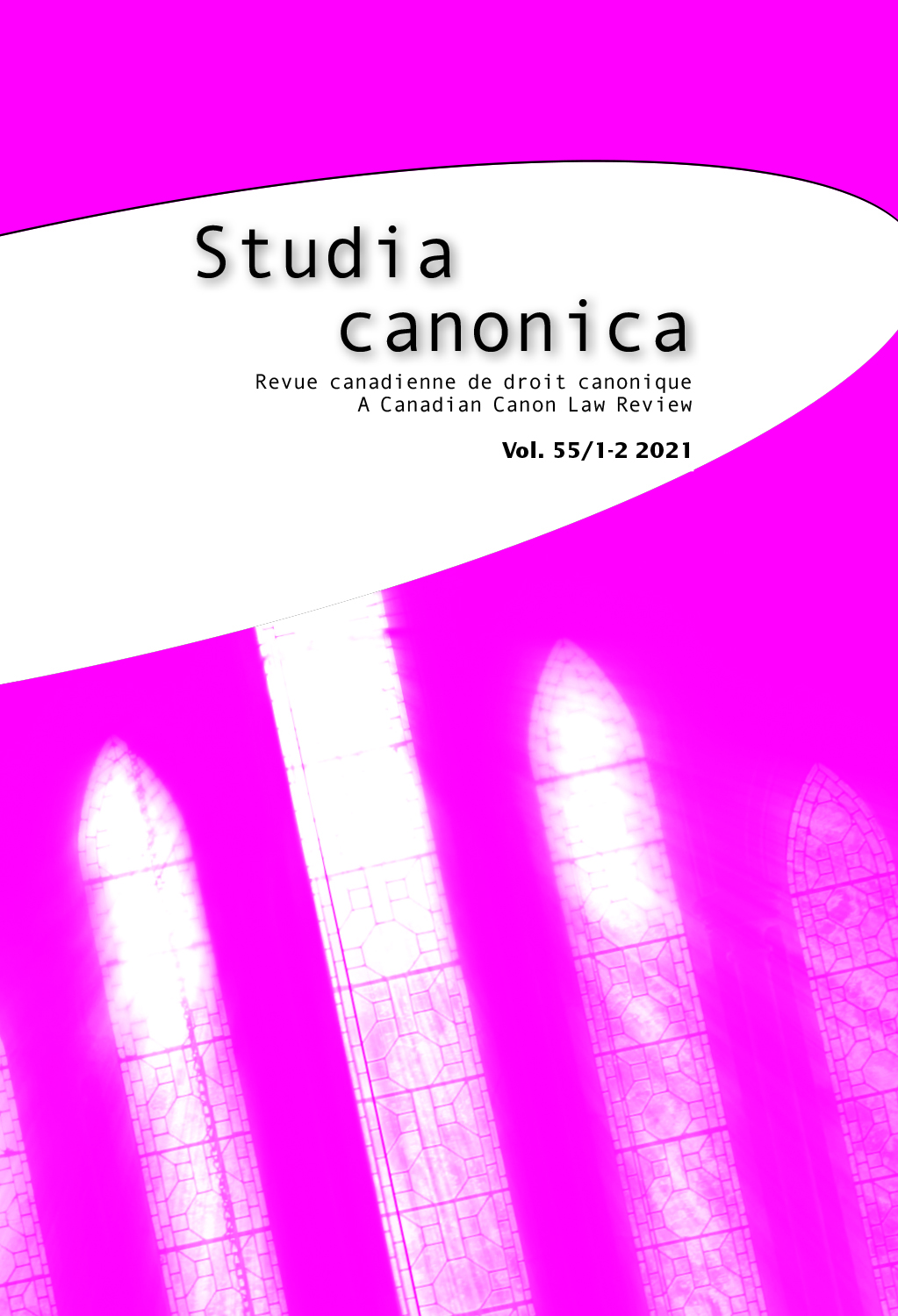 previous article in this issue previous article in this issue | next article in this issue  |

Preview first page |
Document Details : Title: Power and the Exercise of Authority in Service to the People of God Author(s): CLIFFORD, Catherine E. Journal: Studia Canonica Volume: 58 Issue: 1 Date: 2024 Pages: 201-223 DOI: 10.2143/STC.58.1.3293403 Abstract : The full participation of non-episcopal delegates in the XVI Ordinary General Assembly of the Synod and the recent reform of the Roman Curia have raised new questions concerning the participation of laypersons in structures and offices of Church governance. Part 1 shows how Vatican II prioritized the paradigm of the tria munera Christi to distance its teaching from classical theories of power that neglect the ecclesial horizon of ministry. Part 2 considers two attempts to apply the Council’s teaching, interpreted through the lens of contrasting theories of power, to the question of lay ministries and the appointment of laypersons to offices of the Roman Curia. They reveal the inadequacy of the categories of 'sacred power' and the 'power of jurisdiction' to meet the present need for a coherent theology of diverse yet complementary ministries in a synodal Church. Part 3 proposes following a trajectory suggested by Vatican II, yet still awaiting a full elaboration, for a renewed reflection on the participation of the baptized faithful in the royal office of Christ. La pleine participation de délégués non épiscopaux à la XVIe Assemblée générale ordinaire du Synode et la récente réforme de la Curie romaine ont soulevé de nouvelles questions concernant la participation des laïcs aux structures et aux fonctions de gouvernance de l’Église. La première partie de cette étude montre comment Vatican II a donné la priorité au paradigme des tria munera Christi pour éloigner son enseignement des théories classiques du pouvoir qui négligent l’horizon ecclésial du ministère. La deuxième partie examine deux tentatives d’application de l’enseignement du Concile, interprété à travers le prisme de théories du pouvoir contrastées, à la question des ministères laïcs et de la nomination de laïcs à des fonctions au sein de la Curie romaine. Elles révèlent l’inadéquation des catégories de 'pouvoir sacré' et de 'pouvoir de juridiction' pour répondre au besoin actuel d’une théologie cohérente de ministères divers mais complémentaires dans une Église synodale. La troisième partie propose de suivre une trajectoire suggérée par Vatican II, mais qui attend encore d’être pleinement élaborée, pour une réflexion renouvelée sur la participation des fidèles baptisés à la fonction royale du Christ. |
|


